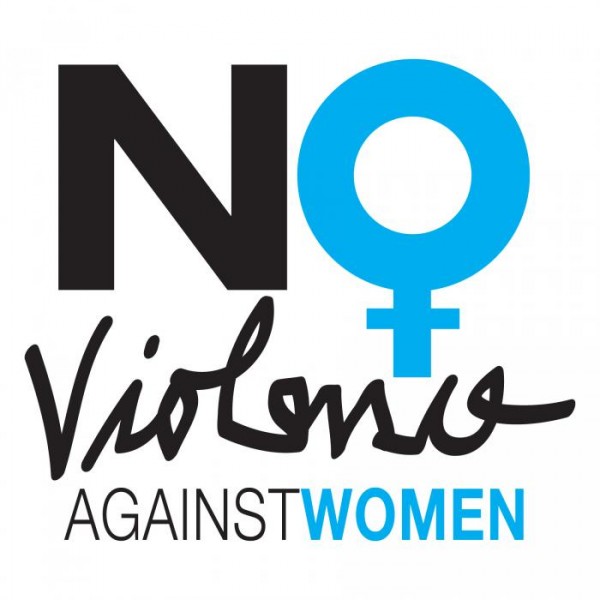 On 14 November 2017, the United Nations CEDAW Committee – which monitors compliance with the Convention on the Elimination of All Forms of Discrimination Against Women – launched new international standards for countries tackling violence against women, in the form of CEDAW General Recommendation 35 (GR 35).
On 14 November 2017, the United Nations CEDAW Committee – which monitors compliance with the Convention on the Elimination of All Forms of Discrimination Against Women – launched new international standards for countries tackling violence against women, in the form of CEDAW General Recommendation 35 (GR 35).
As a party to CEDAW, Singapore is obliged under international law to end discrimination against women. GRs offer guidance on how CEDAW applies. The latest document updates the previous GR 19 on gender-based violence, setting out clear directions on how state parties, including Singapore, can fulfil its treaty obligations.
Gender-based violence is a form of discrimination against women. It is “violence that is directed against a woman because she is a woman or that affects women disproportionately”. CEDAW requires Singapore to take all necessary measures to end such violence.
GR 35 emphasises that gender-based violence is a social – not individual – problem. To eliminate it, it is critical to change social norms and stereotypes that support and perpetuate such violence. The document identifies, for example, the ideology of men’s entitlement over women, norms regarding masculinity, the need to enforce gender roles or punish “unacceptable” female behaviour. Below are some key recommendations and our analysis of how they may apply in Singapore:
1. Ensure that all forms of gender-based violence against women in all spheres, which amount to a violation of their physical, sexual, or psychological integrity, are criminalised. [Paragraph 39]
Situation in Singapore: This would mean, for instance, that Singapore must repeal marital immunity for rape.
2. Adopt and implement effective legislative and other appropriate preventive measures to address the underlying causes of gender-based violence against women, including patriarchal attitudes and stereotypes, inequality in the family… as well as to promote women’s empowerment, agency and voice. [Paragraph 34]
3. The integration of gender equality content into curricula at all levels of education both public and private from the early childhood on and in education programmes with a human rights approach; it should target stereotyped gender roles and promote values of gender equality and non-discrimination, including non-violent masculinities, as well as ensure age-appropriate, evidence-based and scientifically accurate comprehensive sexuality education for girls and boys. [Paragraph 35a]
Situation in Singapore: When asked by the CEDAW Committee about how Singapore teaches gender equality in schools, the Singapore delegation said that textbooks show women and men having access to a range of resources. However, this is distinct from specifically promoting gender equality as a core value. Moreover, the abstinence-based sex education adopted by public schools do not explicitly focus on gender equality, consent, sexual violence, negotiation around family planning or LGBT inclusion.
4. Awareness-raising programmes that… (3) dismantle the commonly held victim-blaming beliefs that make women responsible for their own safety and for the violence they suffer. [Paragraph 35b]
Situation in Singapore: A 2013 survey found that 1 in 10 respondents think women who are raped are often “asking for it”. 40% of respondents aged 18-39 and over half of respondents aged 40 and above agree that women who wear provocative clothing are “asking for it” and should bear responsibility for harassment. Public messages and crime prevention posters by the police focus on restricting women’s movement and advising them not be alone in public to avoid sexual violence, putting the responsibility on victims and not the perpetrators. The disproportionate focus on sexual harassment by strangers on public transport further adds to the sense of confusion, fear and guilt women feel when they are assaulted by someone they know (close to 90% of Sexual Assault Care Centre’s clients were assaulted by someone they knew). Public education that accurately reflects the reality of sexual violence, which the police also plays a critical role in, is necessary to address such victim-blaming attitudes.
5. Adopt and implement effective measures to encourage all media… to eliminate discrimination against women in their activity, including harmful and stereotyped portrayal of women or specific groups of women. [Paragraph 37]
Situation in Singapore: Gender stereotypes are rife in the media, including children’s media. In addition, positive depictions of LBTQ women are barred in local broadcast media, instead only allowing for damaging portrayals of these women to be depicted. This contributes to the normalising of discrimination and violence against LBTQ women. Media reports perpetuate prejudice about sex workers, leading to calls for crackdown on areas frequented by them, with attendant violence.
6. Provide mandatory, recurrent and effective capacity-building, education and training for the judiciary, lawyers and law enforcement officers… to equip them to adequately prevent and address gender-based violence against women. This education and training should include: … (b) the understanding of trauma and its effects… [and] include the intersectional discrimination affecting specific groups of women. [Paragraph 38b]
Situation in Singapore: While efforts towards sensitivity training for the police – being the first point of contact – are a step in the right direction, gender-sensitisation and trauma training are needed for all actors in in all levels of the criminal justice system,For example, recently, in acquitting a man accused of sexually assaulting a 15 year old girl, the court found that the victim was not “prompt in her complaints” and that “there were no reasons for her not to confide in members of her family or her boyfriend..” This was despite the victim’s young age and the fact that the accused was the live-in boyfriend of her mother, and reveals a lack of understanding of how trauma can affect survivors’ decisions on reporting.
7. Establish and implement appropriate multi-sectoral referral mechanisms to ensure effective access of women survivors to comprehensive services, ensuring full participation of and cooperation non-governmental women’s organisations. [Paragraph 40e]
Situation in Singapore: The introduction of a one-stop centre allowing complainants to undergo forensic and medical examinations in a police station is a step in the right direction though its reach and hours are limited. More generally, healthcare services and the legal systems are not seamlessly integrated to serve survivors’ needs. For example, one can get a rape kit examination only if they have filed a police report. To create a victim-centric support system, there needs to be a wider multi-sectoral approach.
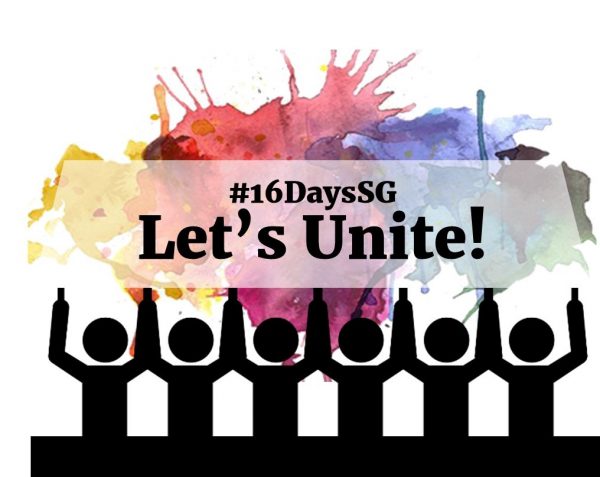
Our government has a responsibility to end gender-based violence on a systemic and institutional level – but we need individual and community action to make change, too! Learn more about how YOU can take action through our campaign, Let’s Unite: 16 Days of Activism against Gender-Based Violence!
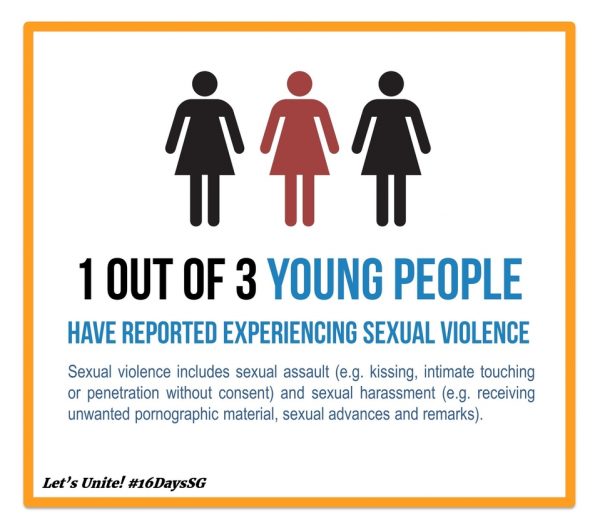 Recently, women have been sharing on social media their experiences with sexual harassment and violence in response to the hastag campaign #metoo, and high-profile cases in Hollywood have been in the news, revealing that such harassment is common, especially in workplaces.
Recently, women have been sharing on social media their experiences with sexual harassment and violence in response to the hastag campaign #metoo, and high-profile cases in Hollywood have been in the news, revealing that such harassment is common, especially in workplaces.



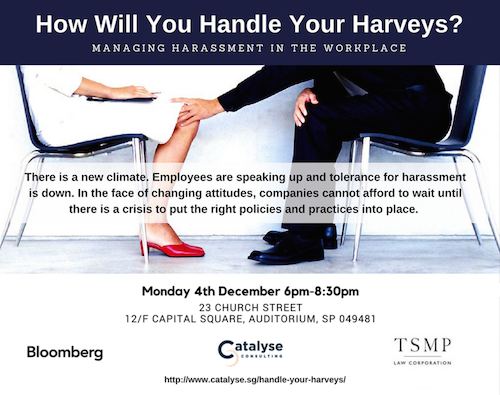 There is a new climate. Employees are speaking up and tolerance for harassment is down. In the face of changing attitudes, companies cannot afford to wait until there is a crisis to put the right policies and practices into place.
There is a new climate. Employees are speaking up and tolerance for harassment is down. In the face of changing attitudes, companies cannot afford to wait until there is a crisis to put the right policies and practices into place. On 14 November 2017, the United Nations CEDAW Committee – which monitors compliance with the Convention on the Elimination of All Forms of Discrimination Against Women – launched
On 14 November 2017, the United Nations CEDAW Committee – which monitors compliance with the Convention on the Elimination of All Forms of Discrimination Against Women – launched 
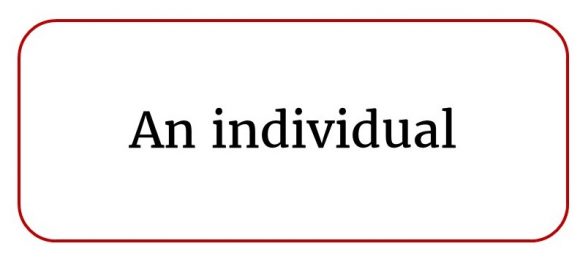
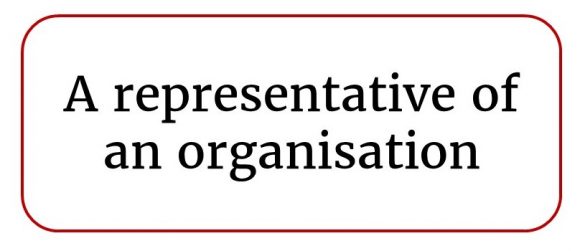

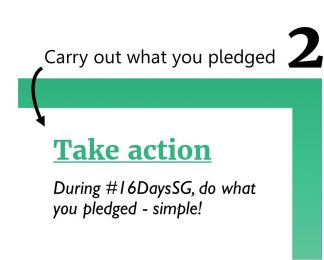
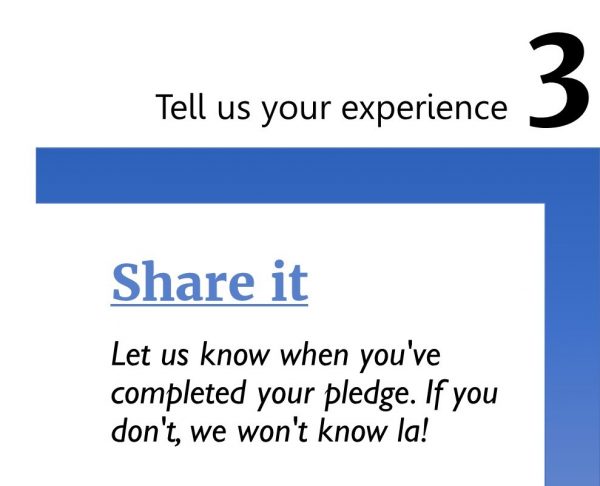


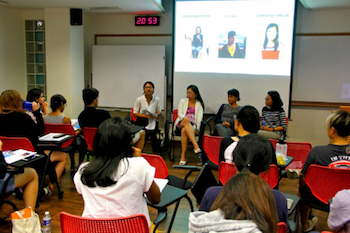 On 13 October 2017, I attended an event organised by the
On 13 October 2017, I attended an event organised by the